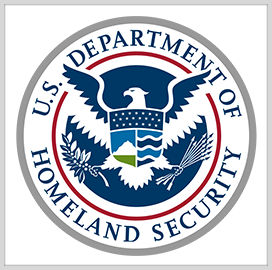
The National Geospatial-Intelligence Agency has updated its commercial geospatial intelligence strategy to emphasize the agency’s need to keep up with emerging technologies.
The recently released action plan includes the agency’s initiatives on expanding partnerships, facilitating information assurance operations and integrating commercial GEOINT systems with automated and artificial intelligence technologies, NGA said Thursday.
Robert Cardillo, NGA director and a four-time Wash100 awardee, said the updated GEOINT plan reflects the agency’s increased flexibility in sustaining and growing its strategic advantage in a rapidly evolving GEOINT environment.
The new strategy supports research, technology and innovation efforts outlined in the National Security Strategy and builds upon a prior GEOINT strategy released in 2015.





